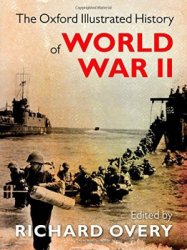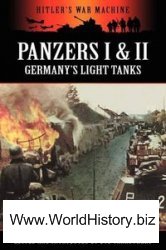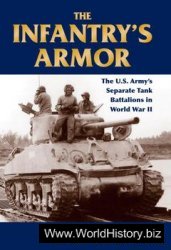Like Chile, Argentina was ruled by an authoritarian military junta during the 1970s which paid no respect to human rights. Unlike Chile, however, Argentina had never developed a broadly based parliamentary tradition. The second-largest country in Latin America after Brazil, Argentina covers an area greater than Western Europe, but the countryside is sparsely populated, since grain-production and cattle-ranching, the agricultural backbone of Argentina’s export economy, require relatively few labourers. It trades profitably, exporting wheat and refrigerated beef and importing manufactured goods. Before the Second World War, Britain had the largest foreign stake, having invested in railways and some industries. Argentina’s population is concentrated in the towns and grew rapidly from less than 2 million in the mid-nineteenth century to 8 million by 1914, and to 37 million in 2000. This growth derived mainly from massive immigration from Italy and Spain during a period of rapid expansion from the 1880s until the onset of the depression in 1929. Argentina thus became the most Europeanised of Latin American nations, but these Western traditions were more those of southern Europe, where representative government and democracy had not flourished in what was still, then, a largely underdeveloped region. Government in Argentina was nominally representative and democratic, but in reality it was manipulated by a wealthy oligarchy whose power was based on their ranches and related agricultural industries and, of course, on the support of the army. The oligarchy had nothing to fear from peasants in the countryside, as there were practically none; nor were there indigenous Indians in significant numbers: they had been decimated in the last of the Indian wars towards the close of the nineteenth century when the military took away their lands to the south and south-west of Buenos Aires.
Political, social and economic tensions arose from a different quarter as Argentina developed - from the urban workers, the small shopkeepers, the low ranks of trade, industry and the professions, excluded from influence and from a fair share of the country’s growing wealth. They did not, however, organise themselves to participate in the electoral process. Trade unions, which followed the anarchist and syndicalist traditions of Spain, were severely repressed and their leaders imprisoned.
More successful was another new group of outsiders, the recently prosperous and the middle classes, who had gained their share of economic but not political power. They formed the Radical Party and finally came to power in 1916. In the strikes following the First World War, their earlier, more sympathetic attitude to the urban workers turned to repression. In socialism, syndicalism and anarchism they identified the enemy within. During the 1920s the urban workers’ wages rose but expectations grew even faster. The Radicals had made many enemies on the left as well as among the ousted conservative oligarchy, and a limited democracy functioned only until a military coup in 1930. The conservative-military alliance, contemptuous of democracy - though manipulated elections were held - saw much to admire in the Nazi Germany of the 1930s and only entered the war against the Axis at practically the last possible moment to avoid exclusion from the Allied United Nations in 1945.
By then the military had tired of the vestiges of representative government, with its party system and the disproportionate power the conservative oligarchy enjoyed. In 1943 the officers organised a coup; the rising star among them was Colonel Juan Peron. While the corporate state in Europe faced defeat, it survived in Franco’s Spain and was to survive in Peron’s Argentina. Peron and his mistress and later wife, Evita, created a new power base, an alliance of the army with the hitherto politically powerless masses of urban workers. The workers remained powerless but they gained the illusion of power by supporting the charismatic caudillo. Franco in Spain, Salazar in Portugal and Peron in Argentina were apparent anachronisms in the Western world, which had fought for freedom and democracy, but they survived and flourished. Peron could also claim legitimacy after he won elections in 1946 with a strong showing of 54 per cent. One reason for his success was the introduction of a host of social welfare schemes, higher wages, minimum wages and pensions. Evita used state funds to finance her foundation which showered benefits on orphans and the poor. When she died in 1952, still young and beautiful, the national mourning was unprecedented. The myth of Evita supported Peron’s rule which, under its glossy populist surface, used the repressive tactics of a fascist regime. A state economic plan and state intervention, with a drive to industrialise, were designed to build a new Argentina. The workers prospered.
The economic downturn after 1949, however, soon brought old tensions to the surface. More orthodox economic management lowered standards of living and political theatre and the support of the Peronist masses alarmed the Church and the oligarchic and military elite. In September 1955 the military engineered another coup and Peron quietly departed into exile. An independent, elected, civilian president was allowed to rule for just four years from 1958 to 1962, before the military deposed him and seized power again: they were always ready to mount coups when the outcome of the electoral process displeased them. The president elected in 1963 lasted only another three years before a further military coup. But throughout the decades the appeal of Peronism, despite the efforts of the military to suppress it, did not lose its glamour among the urban masses.
Argentina depended on world markets for its exports and imports, but in general the terms of trade during the 1950s and 1960s moved against primary producers, though there were brief periods of prosperity, not least because it presented a home market large enough for considerable expansion of the industrial sector. Argentina was plagued by wild swings of economic policy between boom and slump, and it was saddled with the ever increasing burden of foreign loans. Despite its ‘European face’, in its economic development and the strength of its military, Argentina was also very much a Latin American country.
Amid mounting political violence, Peron returned in 1973 and was elected president, but it was too late for him to achieve a political rerun of his former success. Nine months after his election he died. His third wife briefly assumed the presidency, but she was quite unable to master the deteriorating economic and political situation. In March 1976 a military junta staged yet another coup and took over power for the next six years.
This junta turned out to be the most bloody and repressive in the modern history of Argentina. The world media was able to draw attention to its brutality thanks to the courage of the women, the ‘grandmothers’ who every week demonstrated silently before the presidential palace, holding placards and pictures of members of their family who had ‘disappeared’. Their disappearance was the consequence of the ‘dirty war’ the junta waged indiscriminately against the opposition; not only were guerrillas arrested and killed but anyone regarded as subversive could suffer the same fate. For the military there were no constraints imposed by a rule of law. Mass graves were subsequently discovered, but no one can be sure how many died during the years of terror - perhaps 30,000. And in managing the economy the generals were no more successful than their predecessors. Early improvements in response to stricter monetary controls gave way to inflation and recession in the 1980s.
In a bid to divert popular discontent the junta, then headed by General Leopoldo Galtieri, decided on a surprise invasion of the British Falkland Islands, claimed by Argentina as Las Islas Malvinas. The Falklands had come under British occupation in 1833, and the sparse population of some 2,000 overwhelmingly wished to remain British. Under international law, the Argentinians had a doubtful case, but successive British governments would still have preferred a solution that satisfied Argentinian national pride. The main obstacle to a settlement proved to be the British Parliament which understandably would not hear of any diplomatic solution that might hand British citizens over to an authoritarian Argentinian regime. There was no chance of any peaceful outcome once the Argentinians launched an invasion of the islands on 2 April 1982. The British governor and his guard of a few soldiers could offer only token resistance. The United Nations and other intermediaries, including General Alexander Haig, the US secretary of state, attempted to find a peaceful solution, before the British military and naval task force being assembled 8,000 miles away could reach the Falklands. One of the most controversial events in the war was the sinking by a British submarine of the Argentinian cruiser, the Belgrano, on 2 May with great loss of life, at a time when the Argentinian navy was on its way home. Prime Minister Margaret Thatcher was accused at the time of having deliberately torpedoed a promising peace plan that had only just been proposed. It is more than doubtful that the generals would have withdrawn the force from the Falklands, which was the minimum British requirement. In a short conflict the untrained Argentinian conscripts were no match for the British professionals, but the Argentinian air force, with its modern fighters and up-to-date weapons, inflicted severe casualties on the task force. On 14 June 1982 Port Stanley was recaptured and the Argentinian commander surrendered.
In Britain there was no feeling of enmity or hatred for the young Argentinians caught up in the conflict. At the ‘victory’ church service in St Paul’s Cathedral, prayers were said for both the British and the Argentinian dead. It was the most unnecessary war of modern times, and could perhaps have been prevented had the British government listened in time to warnings of an impending invasion. Instead, inadvertently, the wrong signals were sent to Buenos Aires. The invasion itself had been greeted in the Argentinian capital with wild enthusiasm, though the British residents were not in any way molested - to that extent, at least, it was a civilised conflict. A deep chord in Argentinian nationalism had been touched, and the generals were heroes. The let-down of defeat was bound to be traumatic. The one good result was that the military junta could not hope to stay in power much longer. The military made way for civilian rule in October 1983. Raul Alfonsin and the Radical Party won the subsequent election.
Alfonsin inherited appalling economic problems exacerbated by his inability to end the state of conflict on the basis of accepting British sovereignty over the Falklands. After the casualties the British had suffered, a compromise of that principle, possible perhaps before the invasion, had now become unthinkable. The Argentinian economy did not recover, which made Alfonsin increasingly unpopular at home, but the president, a lawyer by profession, restored the rule of law, and human-rights violations ceased. This earned him international recognition and goodwill. Those in the military responsible for torture and murders during the ‘dirty war’ were brought to trial, a development unprecedented in Latin American history. A handful of the military, as well as the leaders of the junta, were sentenced to various terms of imprisonment in 1985. But Alfonsin was not really strong enough to come to grips with the many criminals in the army, which remains a potential power in the state. The most serious and immediate threat to democratic institutions in Argentina, however, has been the perennial problem of the economy. When Raul Alfonsin became president in December 1983, the inflation rate had reached 2,000 per cent, and foreign capital had fled from the shattered economy. Alfonsin’s conservative economic measures and his wage and price controls stabilised the economy only for a time, and did so at the expense of the workers’ standard of living.
In 1986 the Peronist General Confederation of Labour called strikes against the economic programme and in the following year the Peronist opposition provided good evidence of their reviving strength when, in elections for provincial governors, they won most of them while Alfonsin’s Radical Party only just retained a majority in the Chamber of Deputies. The economy continued to deteriorate, and the army was growing restless, though attempted coups by rebellious elements of the military were easily defeated by loyal commanders. Inflation was close to 200 per cent in 1988 and reached 600 per cent in 1989; the hardships this caused were a gift to the Peronists. Their choice for presidential candidate in May 1989 was an unusual one, the charismatic 59-year-old Carlos Saul Menem. Alfonsin had lost the will to govern and transferred the presidency to Menem (who had won the election) prematurely in July.
Menem began with a drastic austerity programme, but by the end of the year Argentina was suffering even worse inflation. The president attempted, in a Peronist spirit, to build agreements between state employers and trade unionists, with the blessing of the Church. Amnesties granted to those members of the military convicted of human-rights offences, including three of the imprisoned junta, were also intended to reconcile the army. The breakdown of Menem’s marital relations, his wife claiming she had been locked out of the presidential palace, added an element of colour to Argentina’s chaotic domestic situation.
In October 1990 Menem issued decrees curbing the right of the Peronist-dominated trade unions to strike, a move that created a split among his supporters. Two months later, the restiveness of the military led to an attempted coup, and to pacify the armed forces Menem pardoned the high-ranking officers responsible for torture and murder during the ‘dirty war’. His reputation ultimately, though, would depend not only on whether he could dismantle the Peronist corporate state, with its featherbedding, its swollen bureaucracy and its uncompetitive state enterprises, but also on whether inflation could be kept under control in the long term. He made a determined start in 1991 to privatise state industries and turn Argentina into a deregulated market economy.
Hyperinflation was curbed, the international bankers were delighted and overlooked the risks. The price of modernisation and reform was high unemployment, but by 1997 the Argentine economy seemed to be in robust growth as trade liberalisation, privatisation and foreign investment fuelled production. It all went horribly wrong. The Argentine peso had been pegged to the dollar on a one-to-one basis during the decade of the 1990s and Argentinians had enthusiastically changed their pesos into US dollar greenbacks. Rising foreign and international debts, the world economic slow down and unbalanced budgets, brought about a spectacular crash when the International Monetary Fund would not rescue the currency. In December 2001 devaluation followed and Argentina defaulted on its debts. The dollar peg was unsustainable. The banks closed their doors. The economy descended into barter, angry Argentinians demanded that they be allowed to draw on their savings now frozen by decree. Rioting in Buenos Aires forced President Fernando de la Rua to resign in January 2002. Congress appointed a caretaker president who was then followed by Eduardo Duhaldo. It was the worst financial crisis in Argentina’s history with consequences reminiscent of the Great Depression of 1929. This time not only the poor but the middle classes were venting their anger. Argentina’s default on its debts closed help from the International Monetary Fund. Remarkably, democratic institutions did not collapse and bring the army to power. After a year of chaos Eduardo Duhaldo’s interim government succeeded in creating a semblance of stability once more. The future, however, in this once wealthiest of Latin American countries remains clouded by the continuing financial crisis and weak political leadership. More than half the people live in dire poverty and one in five are unemployed. A new surge of protest and unrest has only been avoided by governemnt financial handouts. The International Monetary Fund is in negotiation with the government to find a way forward.




 World History
World History









